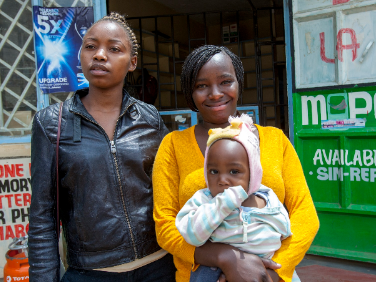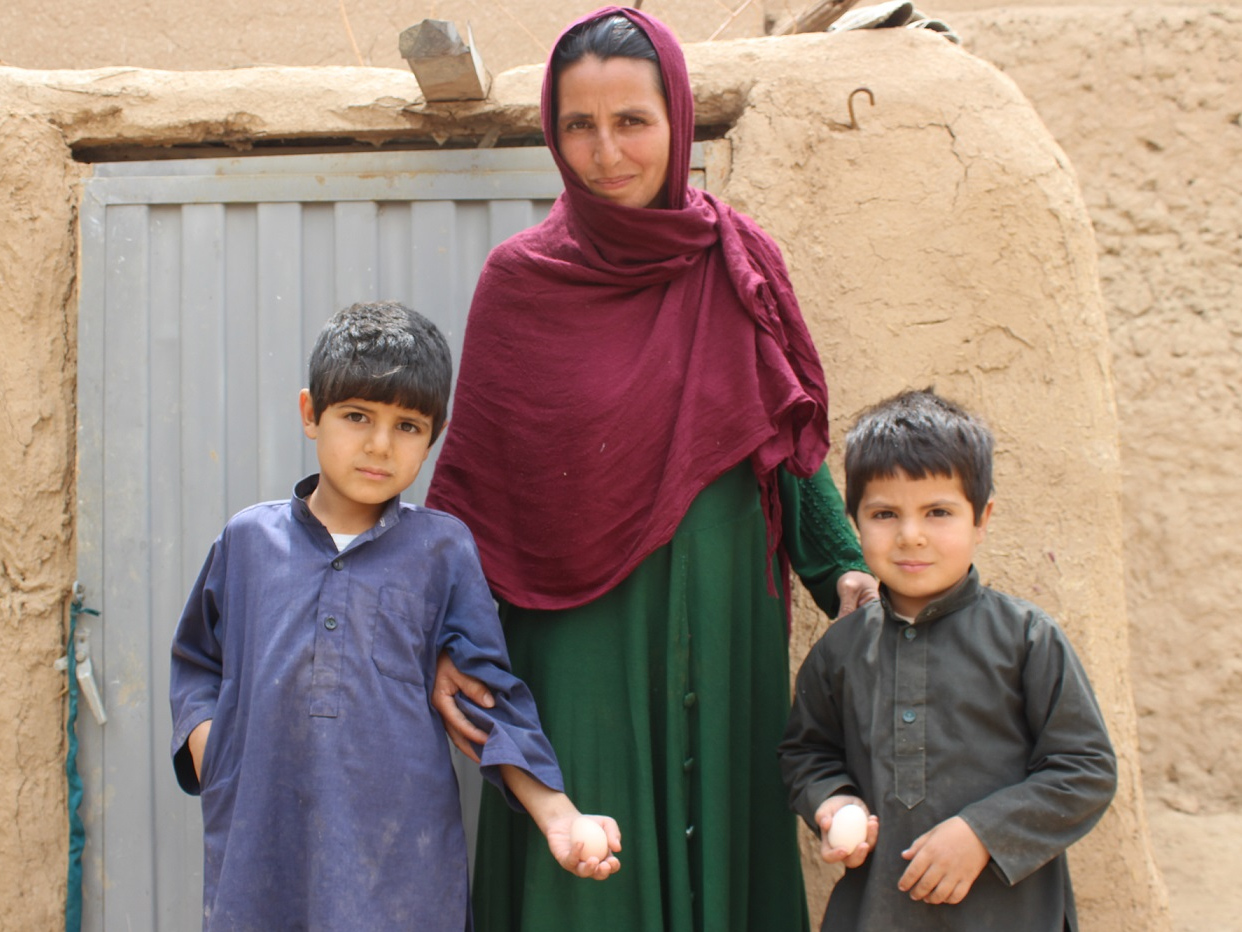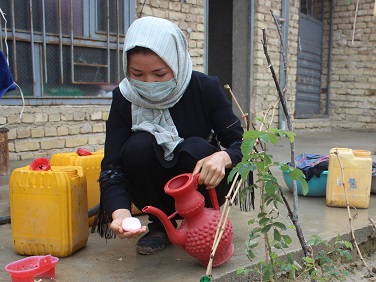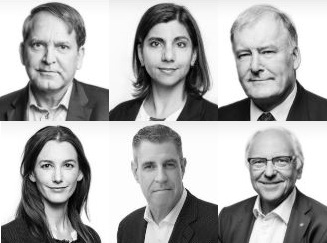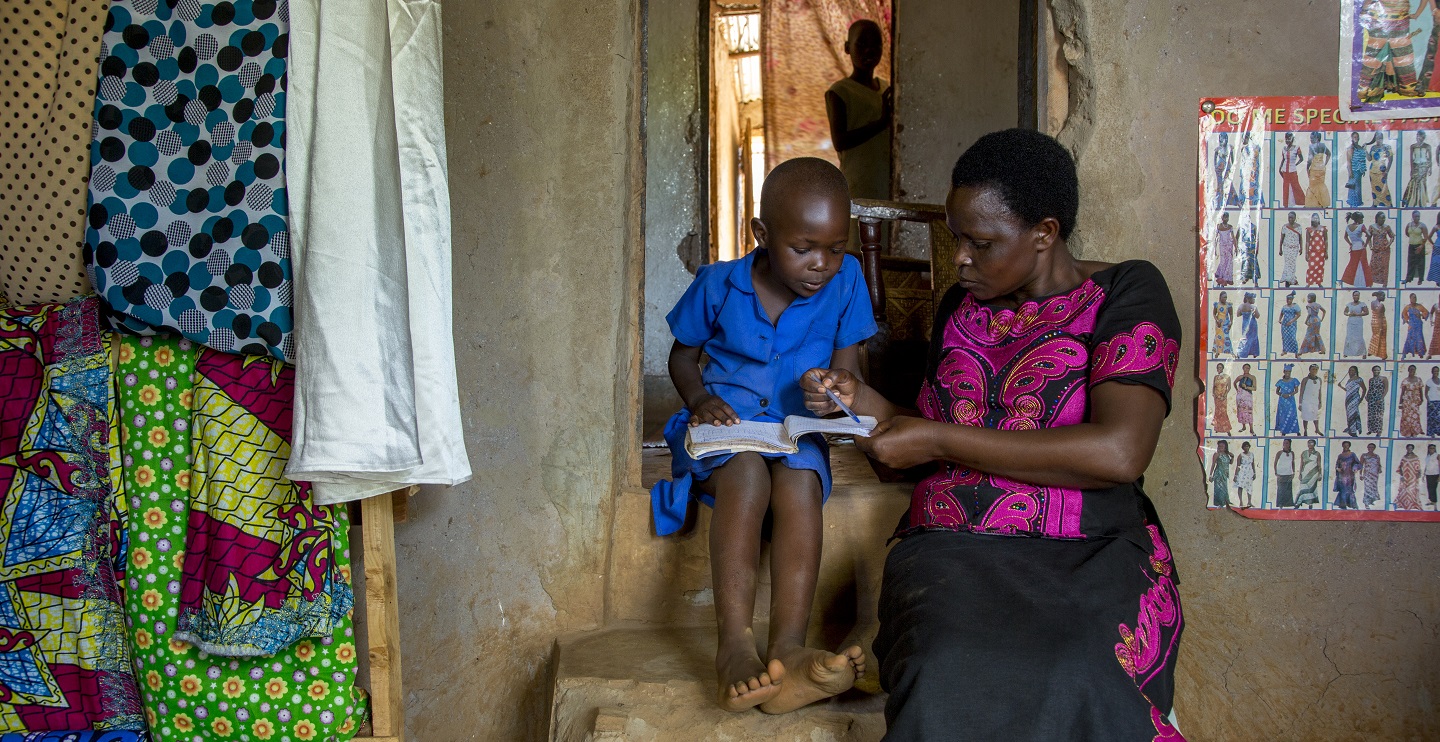
Annual Report 2019-2020
By the numbers
Two billion people – more than 60 percent of the global workforce – earn a living in the informal sector. In the countries where Hand in Hand works, most of them are women.
In 2019-’20, we helped more than 350,000 of them beat the odds and succeed as entrepreneurs. The money they earn and the confidence they gain changes everything. Whole families and communities rise with them.
Members
369,377 added
3,015,036 overall
Businesses
312,854 added
2,930,437 overall
Jobs
558,385 added
4,532,767 overall
Lives improved
1,806,667 added
16,189,394 overall
How we work
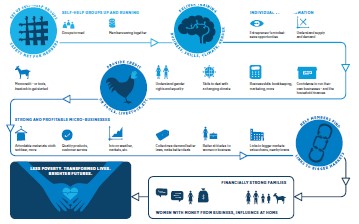 Hand in Hand works in four key stages.
Hand in Hand works in four key stages.
First, we create Self-Help Groups where women support each other, save together and learn together. Next, we provide business and skills training that helps make the most of their potential. Third, we make sure they can get small loans and the tools they need to get started. Last, we help scale up their businesses, so they can reach bigger markets and stronger supply chains.
Our work in 2019-2020
Right now, in the communities and countries where Hand in Hand works, women face restrictive norms and attitudes that keep them from controlling their own assets, growing their own businesses and making decisions for themselves.
For as long as those barriers are allowed to exist, people will go to bed hungry.
In 2019-’20 Hand in Hand significantly expanded the breadth and depth and of our work with women, targeting new economic and social goals. We also continued our work with men, aiming to change the attitudes that keep women from earning an income and having a voice in the first place.
- Accelerating businesses
- Raising women's voices
- Empowering displaced women
- Changing men's attitudes
- Boosting confidence, incomes
Accelerating businesses in Kenya
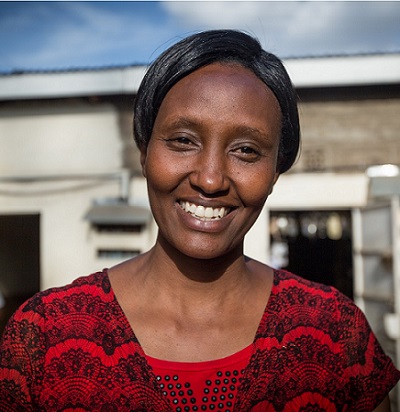 What happens when thousands of Kenya’s most promising women micro-entrepreneurs receive specialist training, financial services and mentor support to help level up their businesses? Thanks to a ground-breaking new partnership with Visa, we’re about to find out.
What happens when thousands of Kenya’s most promising women micro-entrepreneurs receive specialist training, financial services and mentor support to help level up their businesses? Thanks to a ground-breaking new partnership with Visa, we’re about to find out.
Launched in March with a US $2.4 million grant from Visa, the three-year project aims to reach 10,200 members in two groups in the slums of Greater Nairobi, the biggest anywhere in Africa. The first group, some 7,000 strong, will receive Hand in Hand’s tried and tested package of Self-Help Groups, business and skills training, financial inclusion and market linkages to help get their businesses launched and growing.
The second group, our Accelerator, aims to take established micro-businesses to new heights. Here, our trainers will select 1,600 pre-existing entrepreneurs for high-growth potential – including Hand in Hand’s most promising entrepreneurs from previous projects – with an eye to helping them scale up. Businesses in this category will range from retail shops and salons to garbage collectors, upcycled-waste producers and more.
Financial inclusion, a prerequisite to small-business growth, will feature centrally throughout the programme. At least 75 percent of members overall will be women.
By the numbers
10,200 members recruited
75% of members women
6,020 micro-businesses created
1,600 micro-businesses scaled up
Raising women’s voices in Afghanistan
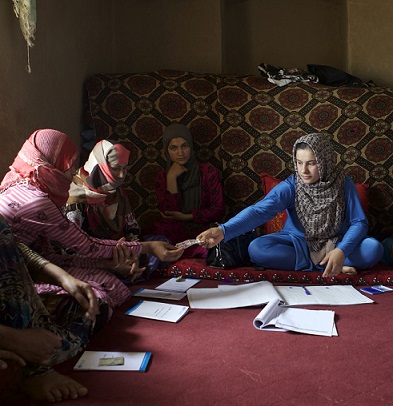
Members of the Almas Self-Help Group in Balkh Province, Afghanistan divide their group savings.
Last year, we teamed up with the Hilti Foundation and CARE, whose Every Voice Counts programme aims to help Afghan women speak up and be heard by local authorities and decision-makers. What would happen, we wondered, if Hand in Hand combined our business and skills training with CARE’s work helping women advocate for change in areas ranging from gender-based violence to women’s health? Does earning an income – and possessing the skills that entrepreneurship implies – make women more confident to speak up inside and outside the home?
By tracking three cohorts of women over two years – those who receive CARE’s training, those who receive Hand in Hand’s and those who receive both – we plan to find out. So far, the results are promising.
Earlier this year, almost a third of the way through programme, researchers from Global Impact Management Consulting conducted a mid-term review of the project. Already, 44 percent of women who receive both business training and social empowerment training reported having more influence and decision-making power in the home. Perhaps more surprisingly, an almost equal number of women who only receive Hand in Hand’s business training – 38 percent – reported the same. Both numbers are expected to increase as the programme, which also aims to create almost 1,000 new jobs, progresses.
By the numbers
44% of women report greater decision-making power at home (so far)
1,000 jobs created by project-end
7,000 lives improved by project-end
Empowering displaced women in Afghanistan
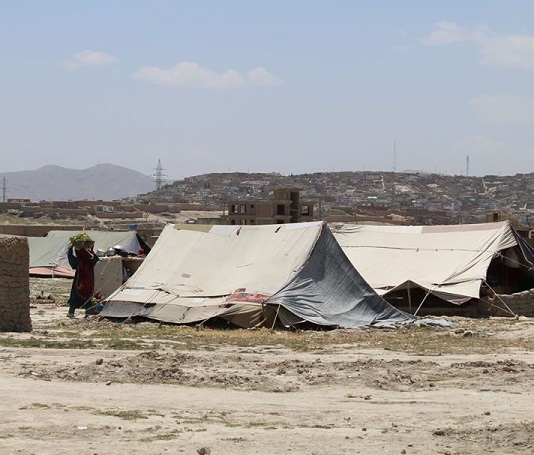
A refugee camp in north Afghanistan where Hand in Hand works.
Last year, more than 700,000 Afghan refugees were forced home from neighbouring Pakistan and Iran – the equivalent, in this relatively small country, of almost the entire population of New York City arriving in the US. But even they are only a fraction of the nearly 4.5 million returnees and internally displaced people forced to relocate within Afghanistan in recent years – in US terms, the whole of California.
Without jobs or even family and friends to help them find their feet, Afghanistan’s displaced people face acute poverty and food insecurity. That’s why Hand in Hand is working with GIZ, the German government’s development agency, to help them thrive in the country’s poultry value chain.
Poultry farming is ideal for displaced people. Skills are easily learned. Food security improves overnight. Incomes, compared to other rural sectors, are high. And increases are quickly realised. The average beneficiary in an earlier poultry project run by Hand in Hand earned a monthly net income of 1,771 AFN (US $23.50) within one year, in many cases starting from zero.
Building on that success, this year we provided 1,894 displaced Afghans – 90 percent of them women; 60 percent of them aged 18 to 35 – with the training and tools they needed to launch their own poultry businesses. We also provided training to all project members covering subjects including the need for women ‘s employment and gender equity in Islam.
By the time to the project concludes in early-2021, we’ll have helped some 4,500 displaced Afghans put down roots, establish profitable poultry businesses and work their way out of poverty, for good.
By the numbers
Average income of US $23.50/mth (starting from $0)
1,894 displaced Afghans mobilised this year
90% of project members are women
Changing men’s attitudes in Tanzania
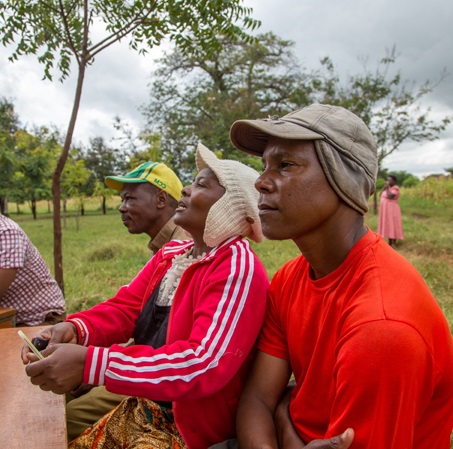
Male Self-Help Group members in Moshi, Tanzania.
Fighting for women’s entrepreneurship isn’t the sole responsibility of women. It’s also up to the men in their lives to support women’s decisions, contribute in the home and confront the damaging attitudes that hold women back.
In March 2019, we announced plans with Cartier Philanthropy and the US-based International Center for Research on Women (ICRW) to boost women’s economic empowerment in Tanzania by providing our business and skills training to 600 women. Departing from the norm, we’re also providing training to their husbands. Just like their women counterparts, these male participants will learn vocational skills and the basics of business. But they’ll also receive modules, in sharing domestic tasks, supporting their wives’ businesses and eliminating violence against women.
In order to generate the most solid learning we can, several tiers of control groups are being established. Half the women in the project will receive training without the involvement of their husbands, and half the men recruited will receive business and skills training only.
Scheduled to start in March, training was delayed due to coronavirus. A new completion date has been set for March 2023.
By the numbers
600 women
300 men
20% uplift in income
Boosting women’s confidence, incomes in Tanzania
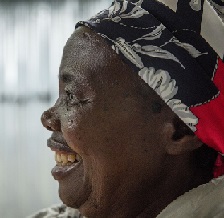
Self-Help Group member Silvester Mboya from Arusha, Tanzania.
Few barriers to women’s entrepreneurship are more fundamental than a lack of confidence. In January, we teamed up with Rwanda-based NGO Resonate to help even the playing field.
Resonate’s Storytelling for Leadership training has helped thousands of young women across East Africa gain the confidence to turn opportunity into microbusiness success by understanding their values and strengths. We want to find out if it also leads to higher incomes, which is why we’re teaching Resonate’s curriculum to 600 members in Arusha region over the next two years.
Learning from the pilot project will be mainstreamed country- and region-wide.
Coronavirus response
In March, as the financial year drew to a close, the novel coronavirus caused businesses to shutter, supply chains to freeze and borders to close worldwide. In Hand in Hand’s operating countries, lockdowns forced Self-Help Groups to down tools. Programmes, and members’ businesses, paused.
Even amidst the greatest global health crisis in a century, our trainers refused to stand down. In Afghanistan, as of 31 March, plans were underway to deliver soap, face masks and crucial virus prevention messages to tens of thousands of people living in hard-to-reach areas in the north of the country. In Kenya and Tanzania, staff began planning a vast mobile phone and SMS outreach effort to deliver key health messages, signpost to vital health services and counter false narratives.
For a look ahead at these and other efforts, please visit our coronavirus updates page. We’ll provide a comprehensive look at Hand in Hand’s coronavirus response in next year’s annual report.
Entrepreneur stories
Evidence
Two reports published this year gave Hand in Hand fresh insight into the success and sustainability of our programmes – and, just as importantly, the ambitions and concerns of our members.
Understanding members’ needs
From designing new projects to evaluating old ones, Hand in Hand puts our members at the centre of everything we do. That’s why we asked 60 Decibels – sector leaders in measuring impact through a “customer feedback lens” – to find out what they’re saying about our work.
For two weeks in November, the team at 60 Decibels interviewed more than 170 members in Kenya who’d completed our training, all within the last two years.
Here’s what they had to say.
- Hand in Hand’s training is useful
95 percent of respondents said they were still using it in their business - Our training improves people’s lives
95 percent saw improvements in their quality of life. Bigger incomes were the main reason why - Hand in Hand goes where others don’t
92 percent of respondents said there was no alternative to Hand in Hand where they lived - People prefer Hand in Hand
Among respondents who had an alternative, 85 percent preferred our programmes
Asked for suggested improvements, respondents cited a range of issues. Increased financing was far and away the most common, at 34 percent. Teams in Kenya are already trialling expanded financial solutions including longer repayment periods, training on external credit options, and more loans tied to productive assets such as water tanks and irrigation kits.
Microbusiness sustainability
By teaching our members the skills they need to run their own micro-enterprises, Hand in Hand necessarily puts sustainability at the core of our work. What good is a livelihood if it doesn’t long outlast our training?
Earlier this year, we published a report funded by generous private donors after checking up on members from a project in Kenya nine months after their training had concluded. Were they still saving? Were their enterprises still going strong? Had Hand in Hand made good on our promise to help them sustainable businesses?
Here’s what we found.
- 92 percent of members were still saving (86 percent regularly)
- 80 percent of enterprises were still operational – and expecting to grow (identical to the new business survival rate in the US)
- 87 percent of jobs still existed
Members had increased their incomes, on average, by more than 100 percent
The report also made a number of recommendations, including carrying out more research, improving data collection and analysis methods, and strengthening mechanisms for feedback from members.
In the time since, we’ve developed a new monitoring, evaluation and learning (MEL) framework in London for application across the Hand in Hand network. We’ve also started a project to digitise our data collection and analysis in Kenya and Tanzania.
Funding our ambitions
Hand in Hand International raised US $6.9 million in 2019-’20: US $6.1 million through our office in London, and US $0.8 million through our partner organisation in Nairobi. As of 31 March, our portfolio of programmes had a combined value of US $16.45 million.
Roughly 80 percent of funds raised came from foundations and corporate donors. Ten percent came from government institutions. And another 10 percent came from individuals.
Eighty-six percent of funds raised were in currencies other than pounds sterling, in line with Hand in Hand International’s efforts to diversify our income currencies.
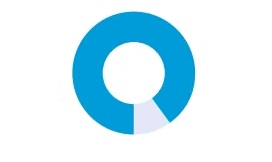
Keeping costs low
Hand in Hand International is committed to keeping our overheads low. In 2019-’20, 90 cents of every dollar we raised was spent on programmes – considerably more than the average of 80 cents per dollar spent by the biggest development NGOs.
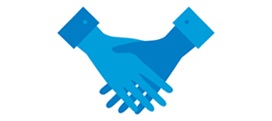
Awards
For the second year running, Hand in Hand was named Charity of the Year by the UK-based Association of Corporate Treasurers (ACT), a global professional treasury body with 6,500 members and students in 90 countries. The ACT’s Annual Gala in autumn saw Hand in Hand raise US $70,000 – enough to fund the creation of 350 microbusinesses and 450 jobs – and featured appearances from Prince Charles (on video) and Britain’s most decorated Olympian, Chris Hoy.
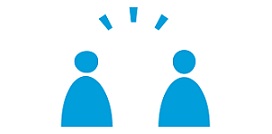
Events
Events at the House of Lords and a historic brewery in the City of London raised approximately US $200,000. The latter event, held jointly with Sweden-based children’s charity Star for Life, featured a talk from economist John Kay and former Governor of the Bank of England Mervyn King.
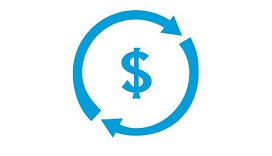
Financial overview
As a result of complications stemming from coronavirus, Hand in Hand’s audited accounts will not be available until January 2021. Please visit again later to view our accounts.
Our leadership
Hand in Hand International’s Board of Trustees unites experts from the worlds of finance, venture capital, industry, law, climate change and international development – all working for a common cause. More than a third of our trustees are women, outpacing the UK government’s 2020 goal for FTSE 100 companies.
Financial overview
For an overview of Hand in Hand’s audited accounts, please see our Report and Financial Statements on the Charity Commission website.
Thank you
None of our work would be possible without our donors’ generous support. We would like to thank the following organisations for their especially significant contributions in 2018-’19.
Applied Value Consulting
The Association of Corporate Treasurers
Deutsche Gesellschaft für Internationale Zusammenarbeit (GIZ)
Google UK
Hilti Foundation
IKEA Foundation
Medicor Foundation
Montluc
Tellus Viva Foundation
Visa
Finally, a special thanks to our Patrons and Trustees, whose contributions and expertise keep us going day in and day out.
Hand in Hand is a global network of legally independent organisations. Based in London, Hand in Hand International is one of three fundraising and support operations network-wide. This report covers projects funded by Hand in Hand International only. ‘By the numbers’ features global network totals.

